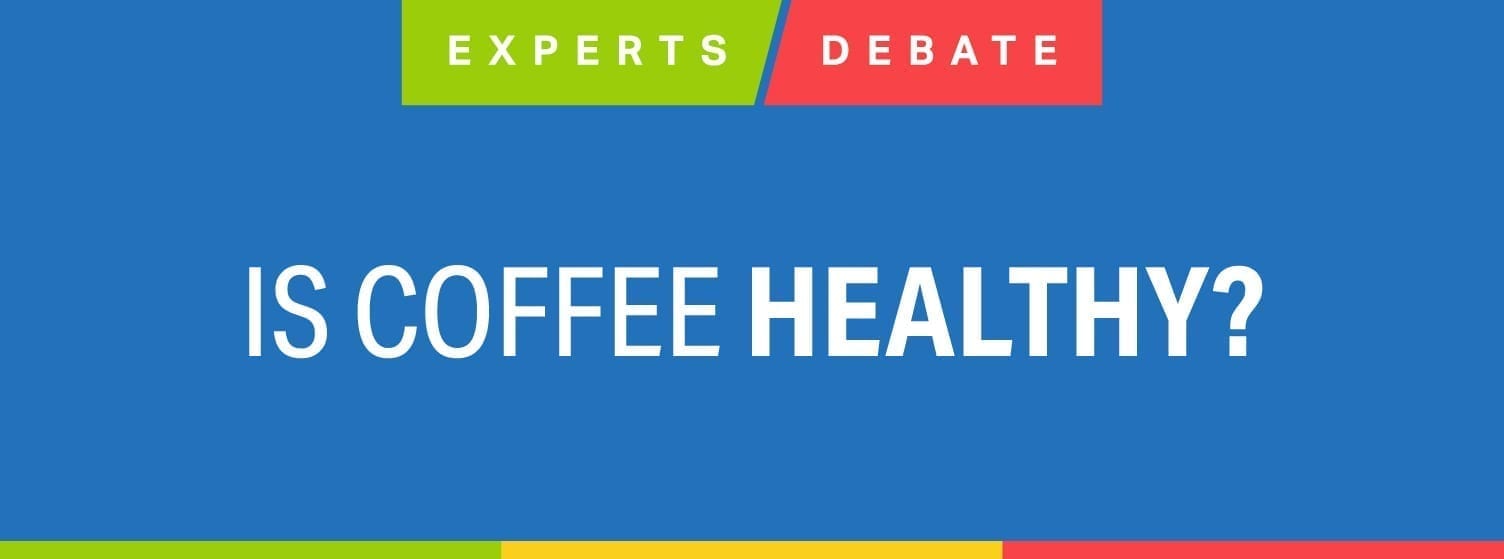If you’re a habitual coffee drinker, you probably couldn’t imagine tackling the day without your morning pick-me-up. For 62% of Americans, coffee is an everyday staple, and the average coffee drinker consumes just over three cups a day (the recommended limit is four cups per day). Some research also shows it can help you power through workouts.
However, if you’re susceptible to jitteriness from caffeine or find it causes an upset stomach, you might be wondering if coffee is actually healthy.
Here, experts weigh in on the pros and cons of the popular drink:

IS COFFEE GOOD FOR YOU?

Yes, coffee is generally healthy for most people. The beverage is very well-studied, has a long history of human use and appears to offer a wide variety of health and performance benefits.

In moderation, coffee can be healthy as long as it doesn’t make you anxious or disrupt your sleep. However, if you have anxiety or certain GI conditions like ulcers or acid reflux, coffee can also be unhealthy as it could exacerbate your symptoms. Whether or not coffee is “healthy” depends on your individual health status.
WHAT ARE THE BENEFITS?

Research shows drinking coffee may help reduce your risk of developing certain cancers, cardiovascular disease, Parkinson’s disease and Type 2 diabetes. This could be due to a combination of the antioxidant and anti-inflammatory properties of coffee as well as some benefits linked to caffeine.

Another pro of coffee is caffeine can give you an energy boost and help you push harder when you workout. In fact, some studies show athletes who have caffeine before a session run faster and have greater endurance. That said, it’s unclear whether coffee can boost your performance when it comes to weight-lifting or high-intensity interval training (HIIT).
WHAT ARE THE DRAWBACKS?

If you’re a “slow metabolizer” of caffeine (due to a variant on your CYP1A2 gene), you may be more sensitive to side effects like jitteriness and anxiety when you drink coffee. Since caffeine can keep you awake, it’s best to stop drinking coffee 6–8 hours before your bedtime.

If you consume your coffee with add-ins like sugars, sweeteners, flavorings and cream, that makes for a less-healthy coffee compared to drinking it black.

If you’re sensitive to caffeine, drinking coffee could cause side effects like headaches, irritability, and digestive issues like heartburn, anxiety and insomnia.
IS COFFEE HYDRATING?

While coffee and other caffeinated beverages have mild diuretic effects (meaning they make you need to pee), there is no compelling evidence of increased risk of dehydration. That said, you shouldn’t rely on coffee as your sole source of hydration.
THE BOTTOM LINE
When enjoyed in moderation, coffee can absolutely be part of a healthy diet. It’s a good idea to track your hydration levels and make sure to “drink plenty of water,” says D’Adamo. To prevent caffeine from interrupting your sleep, he recommends having your last cup at least 6–8 hours before bed.
“As long as you’re not particularly sensitive to side effects, you can reap the health benefits of coffee while minimizing risks by drinking a maximum of about four cups per day,” says Dr. Ring. If you’re pregnant or breastfeeding, talk to your doctor about cutting down on coffee (the American College of Obstetricians and Gynecologists notes 1–2 cups is generally OK).
Finally, keep in mind the way you prepare your coffee can make a big difference. “Consider drinking your coffee black, or with a little dairy or alternative milk instead of reaching for high-sugar lattes and blended beverages,” suggests Siva.
Unlock an experience that’s like having a dietitian, trainer and coach — right at your fingertips. Go Premium for expert guidance and exclusive tools that will help you reach your personal health goals.




